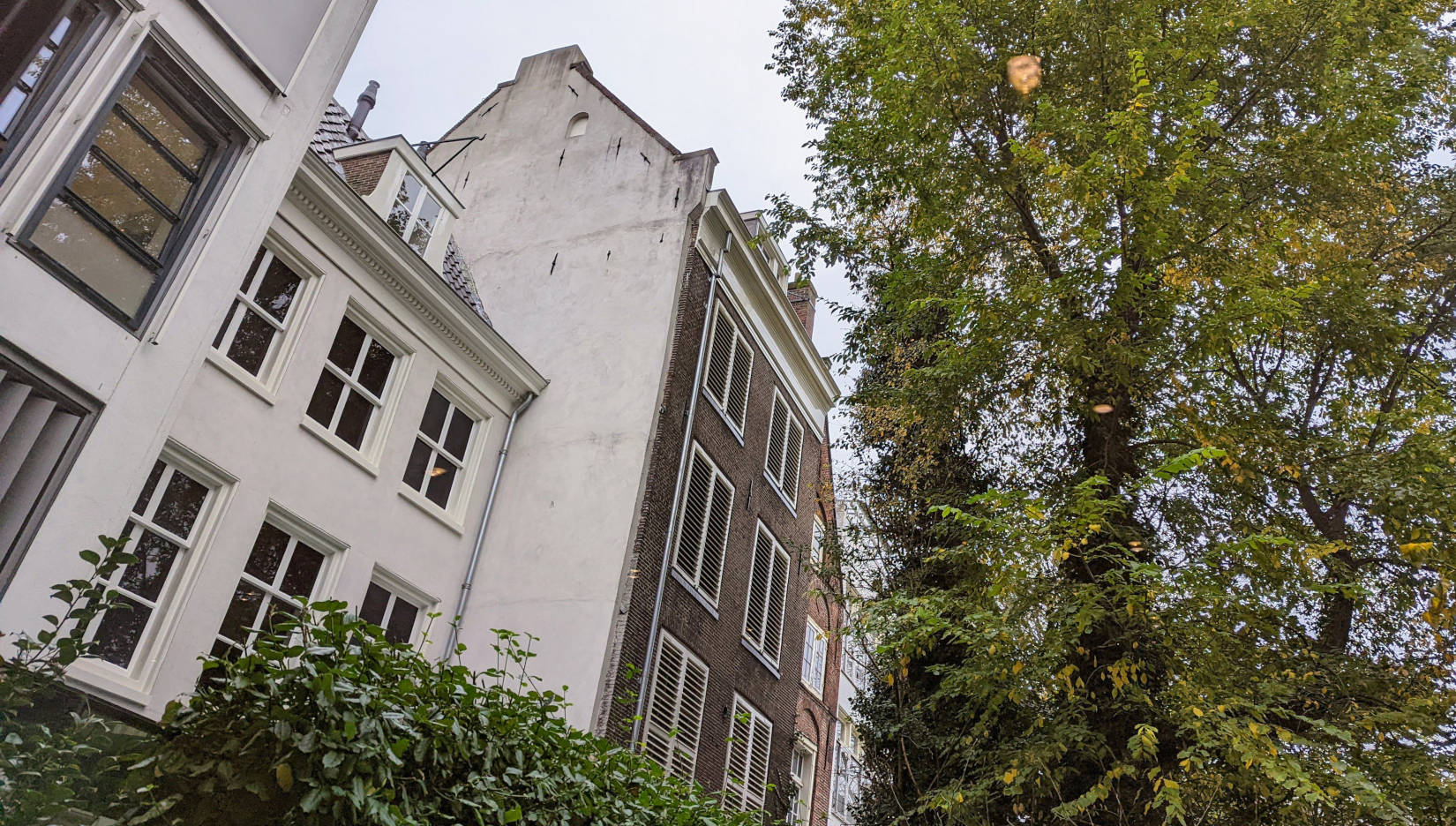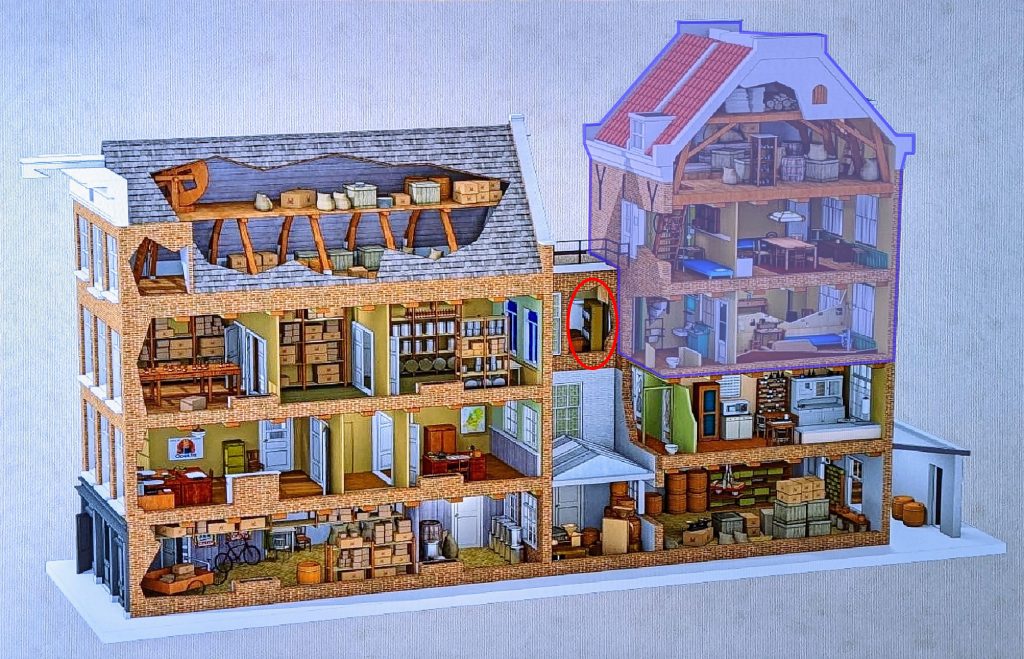
Notes on Anne Frank’s Diary
In preparation for a trip to Amsterdam I read Anne Frank’s diary, whose original Dutch title is Het Achterhuis (The Annex). I scribbled down some notes on points that stood out to me. They may serve as a (subjective) summary to people interested in the topic and as a reminder for myself.
The book starts when Anne is 13 years old and still goes to school. She introduces her classmates, doesn’t seem to be friends with anyone: “I don’t have a friend.” Funnily, she makes meta remarks about how nobody will ever read the diary. When the Nazis arrive in Amsterdam, Jews have to hand in their bicycles (among many other restrictions). Guys hitting on her and school itself are topics on her mind.
Fairly suddenly the Frank’s family’s Jewish friends start disappearing, because the Nazis arrest and deport them. She and her family flee on the 6th of July 1942. In the hideout the silence is the main thing bothering her at first. Her sister is not allowed to cough even though she is badly sick. Later she also mentions that she can’t go outside and fears being discovered.
The book contains comments she added later, marked as such. It’s amazing how she once originally wrote, for example, that her dad was nice but often siding with her family in the case of disagreements, just to later add a comment trying to paint a different picture, “daddy is always so nice to me, he understands me perfectly”.
She seems to have a difficult relationship with everyone (her family and the hosts) except her dad. In particular her mother she doesn’t like at all.
She is quite aware of the concentration camps and suspects that Jews are being murdered there. She herself is stateless, because her German citizenship was taken away. She gains almost 9 kg in the first three months in the hideout. Religion is hardly ever a topic. Activities they seem to pursue in hiding are calisthenics, learning languages, studying, reading, and listening to the radio (no German stations, except for classical music, because they don’t want to hear the language).
They are often sick and can not do much about it. The cat is called Muschi. She often goes “… when the war is over.”, seemingly being totally certain that Nazi-Germany will be defeated eventually. At some point they even anticipate the war to end in late 1943 and thought that was a terribly long time.
Often air raids terrify them. They have a lot of disagreements, tension, and fights among the people hiding. Unsurprisingly, given they live in such a confined space.
She has a major crush on a guy named Peter, who is also hiding in the annex (there are eight Jews there in total) and she longs for intimacy. They experience several break-ins to the office to which their annex is adjacent.

Peter and she come closer together. They talk about sex and how they look “down there”. Anne was not thoroughly sexually educated by her parents. Often it shines through that she’s a child (now 14 years old). For example she thinks about whether she and Peter will ever kiss. Eventually, in April 1944, they do. She often disagrees with her parents, e.g., on whether she is allowed to see Peter, seems to be stubborn, and notes down how she knows she is right and her opinion won’t change even when she grows up.
Politics are a big topic in the annex, but not in the diary. At some point the Dutch president announced diaries should be published after the war to document the Dutch’s suffering. She and the others think of her diary immediately, of course.
One day burglars break into the adjacent building (not for the first time). When the police – alarmed by the neighbors – comes, it almost discovers the secret annex. The police even rattles the bookshelf covering the entrance and Anne describes the extreme fear.
She’s reading a lot and learning languages. The people in the hideout value birthdays; typical gifts are food, books, and clothes. They (and the Dutch) are greatly happy about “the invasion”. That is, the allied landing in Normandy in June 1944.
The diary ends rather abruptly, before the SS imprisoned the eight people hiding. To this day it is unclear how the SS found out about them. All but her dad died in the concentration camps they were deported to. Anne died in the Bergen Belsen concentration camp in 1945.
What she picks as topics in the diary is extremely biased. Once she writes for example, that she won’t speak more about the suffering, because it would only make her feel more miserable. So seeing what she writes as an accurate reflection of her life would be incorrect.
Reading the diary certainly lets one commiserate with the family and more broadly the people prosecuted by the Nazis. Beyond that it is interesting to read the (almost unfiltered) thoughts of a teenager and relate to it. Seeing the real annex in Amsterdam, after picturing it mentally for so long, was certainly an interesting experience. A photo I took of the annex can be seen at the very top of this blog.